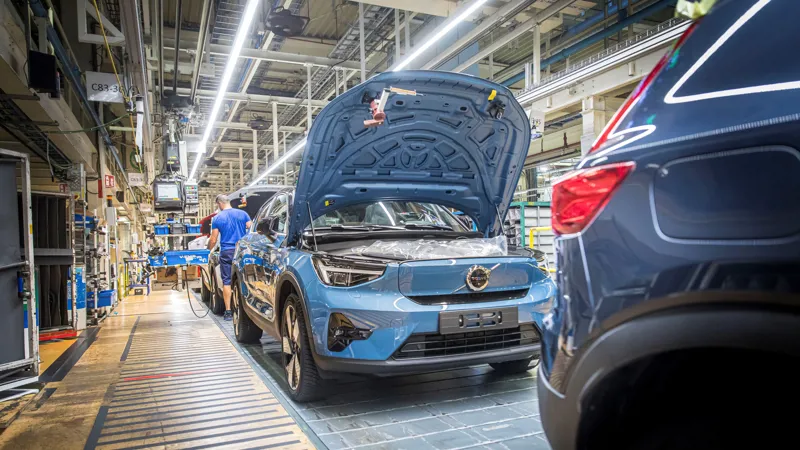UK car production fell by 8.4% in August, according to figures released today by the Society of Motor Manufacturers and Traders (SMMT). The decline is part of a continuing trend this year, as factories scale back output of older models and retool for the production of new, primarily electric vehicles. This follows the announcement of £24 billion in UK automotive investment last year, aimed at driving the shift toward electrification.
Electrified vehicle production, including battery electric, plug-in hybrid, and hybrid models, dropped significantly by 25.9% in August, reducing their share of total output to 29.6%. Despite the dip, the SMMT expects this downturn to reverse in the long run as new electric models enter the market.
Production for the domestic market saw a sharper decline of 19.8%, though this figure is affected by the relatively low production volumes typical in August, when many factories scale back for the summer. The UK primarily exports its vehicle production, making domestic market numbers less indicative of broader trends.
In contrast, export production saw a smaller decline, down 5.9%, largely attributed to model changeovers for vehicles destined for EU markets. The European Union remains the UK’s largest export market, accounting for 49.8% of total car exports. The United States (17.0%), China (6.5%), Japan (5.1%), and Australia (4.4%) round out the top five export destinations. Notably, exports to both the US and Japan experienced growth.
Despite the August decline, year-to-date UK car production has fallen by 8.5%, totaling 522,823 units. However, output for the domestic market is up 12.3%, reflecting growth in previous months that offsets the recent downturn.
Mike Hawes, chief executive of the SMMT, acknowledged the seasonal lull in production, saying, “With the traditional summer shutdowns and factories prepping to switch to new models, August was always going to be a quieter month for output.” He emphasized optimism about the sector’s potential for recovery, driven by record investments announced last year.
Hawes added that the UK automotive industry’s future competitiveness depends on government support, highlighting the upcoming Autumn budget and the proposed Industrial Strategy as key opportunities. He also pointed to Labour’s Automotive Sector Plan as a potential blueprint, emphasizing proposals for cheaper green energy, skills investment, and the development of healthy domestic and international markets as essential to driving growth across the sector.
The UK automotive industry continues to transition, with the shift toward electrification seen as central to future growth.
You Might Be Interested In

